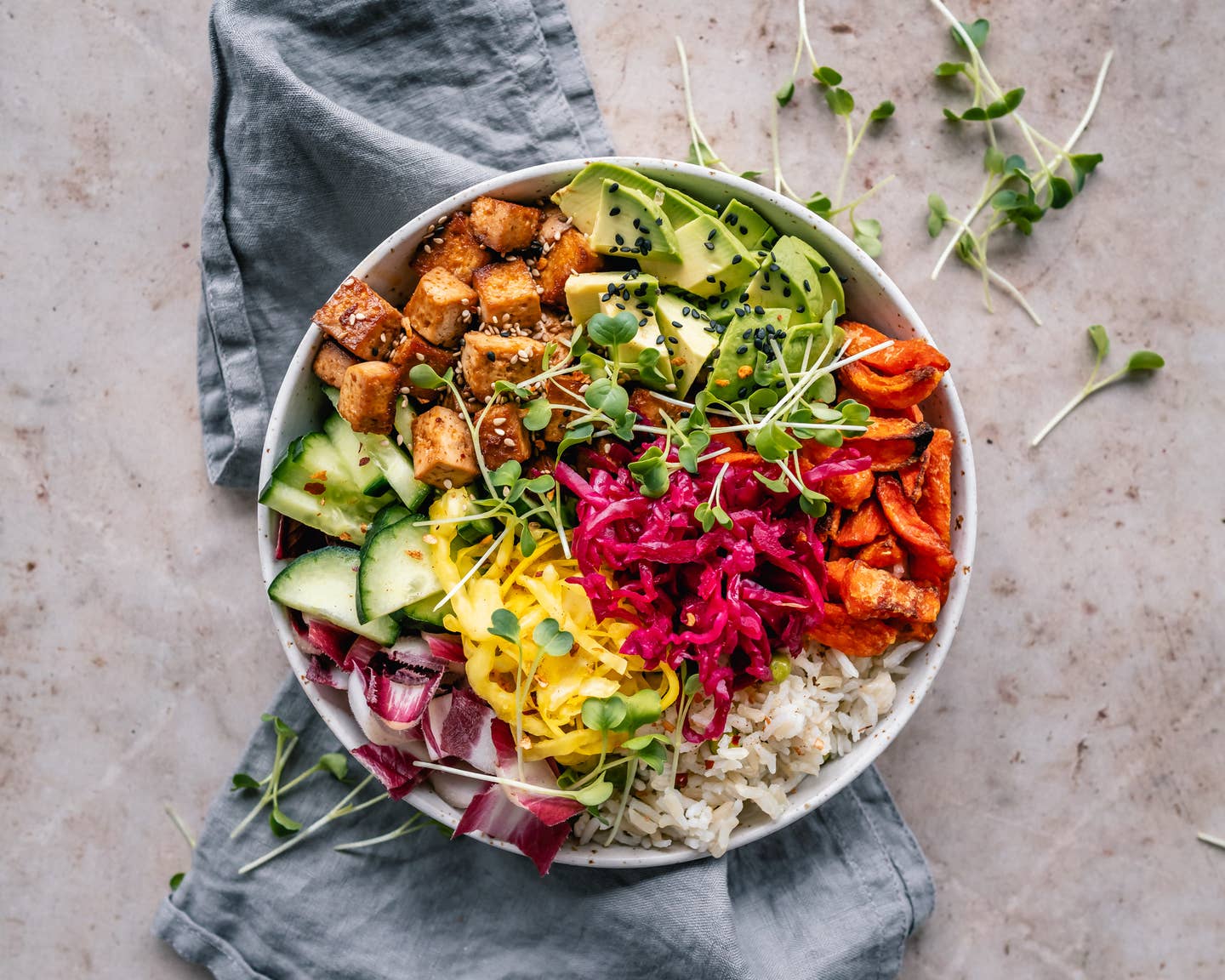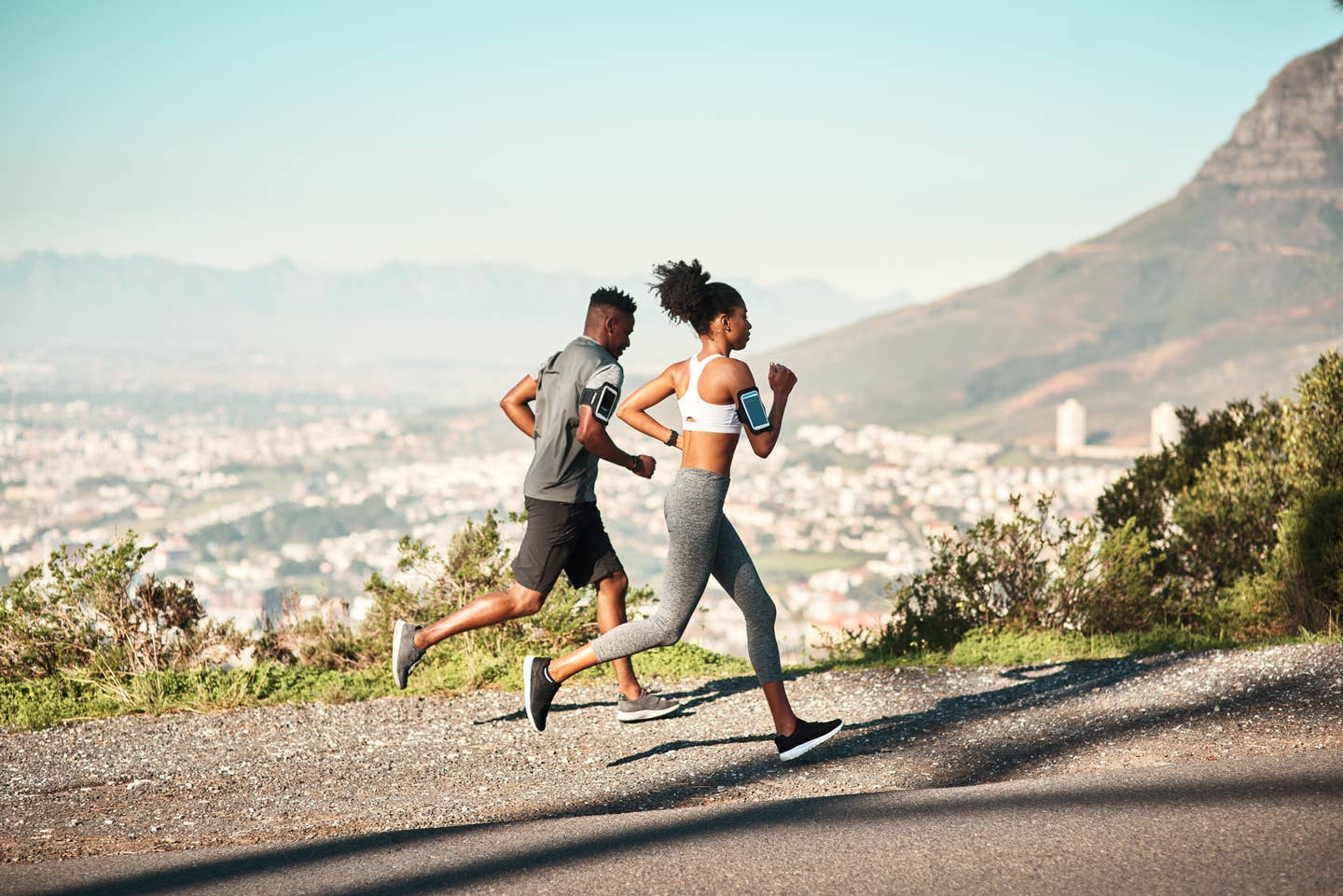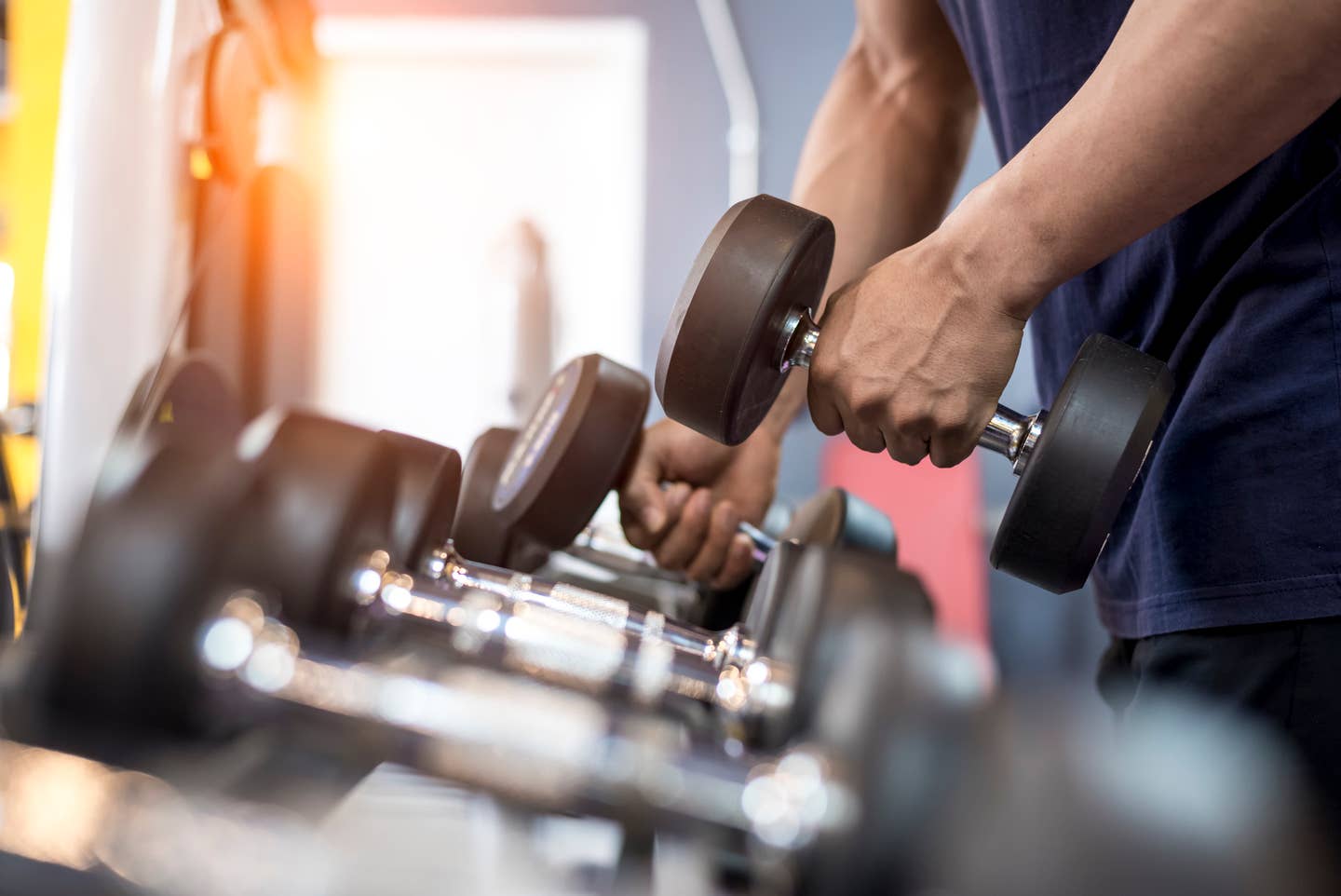
The Best Post-Workout Vegan Foods to Build Muscle, Have More Energy
You just crushed your workout and now are in search of the best post-workout foods that will help you build muscle, have energy, and promote your recovery. While you may have had a great vegan pre-workout meal, you will also need to refuel after work out with a healthy mix of carbohydrates, proteins, healthy fats, and more.
What are the best vegan post-workout snacks? If your goal is to build muscle, help speed recovery, and get leaner, refueling requires a combination of complex carbohydrates, lean protein, and electrolytes, as well as hydration. You don't need a protein powder to get everything you need for recovery and to repair damaged muscles, since you can get it from whole foods.
To prevent you from guessing what foods are best, we compiled a list of the top 8 foods you’ll want available in your fridge and pantry after every workout. Here we found the healthy post-workout foods that do all that and have beneficial vitamins and minerals to avoid a drop in your performance and help your muscles repair.
Best vegan food for muscle recovery
Tofu for protein, to help muscles repair and rebuild
One of the key nutrients post-exercise is protein, which plays a large role in repairing muscles. According to a 2013 article, eating protein after exercise assists the skeletal muscle to adapt and change according to the specific workout which helps with muscle reconditioning.
Tofu made the top 9 foods because of the boost of protein in every serving (about 9 grams per 3 ounces). Plus tofu is one of the few plant-based proteins that contain all 9 of the essential amino acids your body needs to rebuild damaged muscle tissue. A 2015 review states that soy proteins can offer cardiometabolic advantages all while supporting lean body mass gains and promoting fat loss.
Flaxseed for muscles repair and to fight soreness
The addition of flaxseed to smoothies, salads, or yogurt can give great texture but also a heaping amount of omega-3 fatty acids (1.8 grams per tablespoon, to be exact). These fats can help combat inflammation, which could prevent muscle soreness after a solid workout.
According to a 2021 study, healthy males that received 3 grams per day of omega-3 supplementation had improved aspects of exercise-induced muscle damage, which included muscle inflammation, strength loss, and muscle soreness.
Quinoa for clean protein to build muscle
If you’re not a fan of tofu, quinoa is another plant-based grain that contains high amounts of protein which contains all of the essential amino acids that you need. According to a 2015 article, it also contains higher amounts of lysine and methionine (two amino acids) compared to other plant-based proteins.
Lysine is an important amino acid to add to your diet since we are unable to make it ourselves. Our skeletal muscle contains high amounts of lysine, and if it gets too low it could affect protein synthesis (the rebuilding of muscle after a workout).
Leafy greens help boost muscle function
Stock up on your leafy greens and whip up a salad post-exercise because a diet full of nitrate-rich greens has been shown to boost muscle function. According to the 2021 study, participants who consumed high amounts of nitrates (which are found in leafy greens like spinach, kale, and lettuce) had an 11 percent stronger lower limb strength.
When nitrates are consumed, our body converts them into nitric oxide. This helps to open up our blood vessels which allows better blow flood and improved exercise performance.
Watermelon for hydration
Hydration post-exercise is very important to avoid becoming dehydrated, and what better way to replace those fluids than munching on some watermelon. Eating 1 cup of watermelon is comparable to drinking one-half cup of water, plus it comes with potassium and magnesium (important electrolytes that get lost with sweat).
Watermelon also contains the amino acid, l-citrulline, which has been shown to relieve post-workout muscle soreness, reduce blood pressure, and improve cardiometabolic health according to a 2013 study.
Vegan post-workout carbs and healthy fats
Avocados improve recovery and add healthy fat for cardiovascular performance
This creamy fruit contains loads of heart-healthy monounsaturated fats, but also a surprising amount of fiber. A 2013 study found that swapping out monounsaturated fatty in place of saturated fatty acids may actually keep you motivated to continue to exercise, plus it was shown to boost resting energy expenditure (the number of calories you burn at rest) by 3 percent.
Eating avocado may also benefit you pre-workout, with a 2020 study finding that participants receiving avocado before running on a treadmill at submaximal levels (about 85 percent of maximum heart rate) had improved cardiovascular recovery, including heart rate and blood pressure.
Sweet potatoes to add fiber, potassium, and healthy carbs
Although protein gets a lot of attention post-workout, carbohydrates are another macronutrient that is important to replenish. Our body uses stored carbs in the form of glycogen to supply our muscles fuel when we exercise. Refueling on carbs is important to ensure they are available for our next physical activity.
One large sweet potato (about 180 grams) can contain upwards of 37 grams of carbohydrates, plus other beneficial nutrients such as potassium and beta carotene. According to a 2019 study, consuming potatoes was as comparable to carbohydrate gels in replenishing and sustaining carbohydrate availability for exercise performance.
Rice cakes for fiber and complex carbs
Rice cakes contain ample amounts of carbohydrates, but compared to other grains, they don’t have as much fiber. Although fiber is an important part of a healthy diet, it slows the release of glucose into the blood that provides energy.
According to a 2018 report, high-glycemic carbs that pass through the digestive system quickly, such as rice cakes, can help to replace the glycogen that gets lost after an intense workout. It states that eating around 0.5 to 0.6 grams per kilogram of rapidly digesting carbs every 30 minutes for 2 to 4 hours post-exercise can increase glycogen synthesis.
Bottom Line: You can get all the nutrients and protein you need to refuel after a tough workout from whole foods. If you want to add more protein to your diet, you can do so with vegan protein powders.
Look for more ways to improve your workouts without breaking the vegan diet streak? Check out our plant-based diet and exercise tips!
More From The Beet






